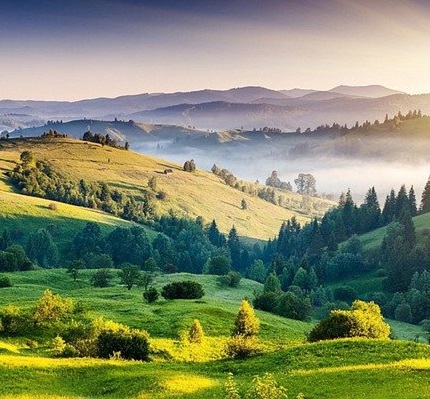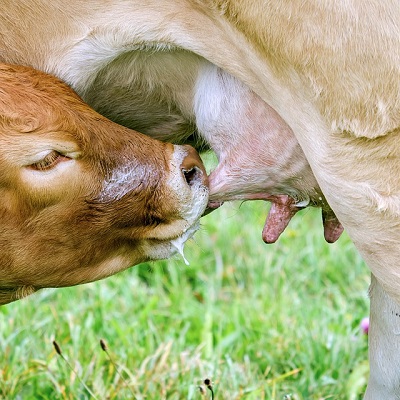News
Stories making wavesQuestion Time
CHARITIES UNITE AGAINST UK GOVERNMENTS 'ATTACK ON NATURE'


Individuals, community groups, the Church of England's lead bishop on the environment and UK conservation charities are all calling on the government for a change to their recent 'mini-budget' proposals, many of which are being seen as a direct "attack on nature". The re-introduction of fracking is bad enough, after being banned in England in 2019 following research regarding the risk of earthquakes (and recently even the founder of Caudrilla said it would be impossible on any meaningful scale and won't help with the energy price crisis). But in addition, environmental protections are likely to be slashed to make way for development, as Chancellor Kwasi Kwarteng announced the creation of 38 new low regulation, low tax, investment zones across the country, where planning restrictions could be lifted to encourage growth. Though the plan is focused on England for now, there is a clear intent to extend these investment zones across the rest of the UK.
The UK' largest nature charity, the RSPB, published a map of these proposed zones, worrying they'll allow indiscriminate development at the cost of the country's biodiversity and natural habitats. They tweeted: "Make no mistake, we are angry ... As of today, from Cornwall to Cumbria, Norfolk to Nottingham wildlife is facing one of the greatest threats it's faced in decades. What the Government has proposed in today's mini-budget on top of yesterday's announcements potentially tears up the most fundamental legal protections our remaining wildlife has."

The Wildlife Trusts have announced they're taking a stand with the RSPB in "calling out the unprecedented attack on nature" and that they will be challenging the decisions together and calling for their supporters to stand with them. Meanwhile Hilary McGrady, director general of the National Trust said, "Rather than ramp up action to support our environment, this government appears however to be heading in the opposite direction ... the new Investment Zones represent a free-for-all for nature and heritage, yet we know that green spaces and beauty are vital to attract investment and for a good quality of life."
The charities, along with many others (including some conservative MPs) are also deeply concerned that EU environmental protections could also be ripped up under a new bill announced by the government last week, including the potential rollback of around 570 environmental laws covering everything from pesticide use to pollution and habitat protection. Whilst former environment secretary Michael Gove promised that after Brexit, the UK's environment laws wouldn't be watered down, Business secretary Jacob Rees-Mogg said that "retained EU law was never intended to sit on the statute book indefinitely." The RSPB says that it could mean the end of "laws that protect our birds and animals, everywhere from forests to our coasts."
There are also rumours that the UK government could scrap plans for schemes that would pay farmers for improving nature and increasing carbon capture. Michael Gove also came up with the Environmental Land Management Schemes (ELMs) to encourage landowners to make space for endangered species, help protect nature and enrich the environment (3 schemes due to be introduced in the next few years) but there are also indications that the UK government could scrap these plans that would pay farmers for improving nature and increasing carbon capture and instead be paid a yearly sum for every acre of land they own, which is very similar to the EU's basic payment scheme, part of the highly criticised common agricultural policy.
Craig Bennett, chief executive of The Wildlife Trusts, told the PA news agency on Saturday: "Environmental organisations were concerned that vital nature protections would be lost through Brexit but we were told all would be fine. Instead we have a catastrophe. Farming reform was supposed to be the silver lining but now the Government looks set to renege on that too." He added: "The estimated cost to UK farmers of soil degradation alone is £1.2 billion each year. To secure a sustainable future for British food and farming, we need more nature."
National Trust general director Hilary McGrady says that a "rumoured return to EU-style land subsidies" will waste one of Brexit's most significant opportunities for nature - "fatally undermining improvements to the nature, soil and water upon which sustainable food production depends."
The Rt Rev Graham Usher, the Bishop of Norwich said, said: "The Government's rhetoric of pitting nature and climate change action against investment and growth, I don't think is healthy and neither is calling our internationally agreed commitment to the environment 'burdens'."
He went on to say,"My clear message is I believe the Government's current course of action - its current recklessness with nature - is a travesty. It fails to understand that healthy nature underpins a healthy society and a healthy economy. Now is the time to speak up for the care of God's creation, but also so this generation and future generations can enjoy the awe and wonder of God's creation. Investment is important and finding jobs is really important, but should that be at the cost of what the Government is calling ripping up red tape? Red tape often is there for a purpose and has been developed over many years because of environmental disasters we have faced in the past. It does need to be urgently challenged."
The RSPB have asked the Government 3 things:-
1) Government. Will you protect the laws that protect nature? This means keeping the Habitats Regulations in the UK law which protect the very best wildlife sites up and down the country and keeping the laws protecting our rivers and beaches from pollution and sewage and making sure protections for nature aren't trashed in the proposed new 'Investment zones'.
2) Government. Will you make sure that in return for taxpayer's money, farmers are fully supported to farm in a way that protects and enhances the natural environment? This is a 2019 manifesto promise. It means keeping and developing the new Environmental Land Management Scheme that many in DEFRA have worked so hard on. And we know that food security relies on nature's health. Let's have an end to this false argument about food vs nature. Without nature, ultimately, there is no food.
3) Government. Ahead of the global COP15 summit of Convention on Biological Diversity, will you restate unambiguously that your government will deliver "the most ambitions environmental programme of any country on earth." As clearly written in your 2019 manifesto?
The legal commitments for nature's recovering in the Environment Act were a very welcome step. But the Government cannot hope to meet them if the answer to the first two questions is 'no'.
It seems no-one is going to take this lying down. As more charities and individuals speak out, you can do your bit too by speaking out and contacting your MP. Read more and taken action by visiting the RSPB website.